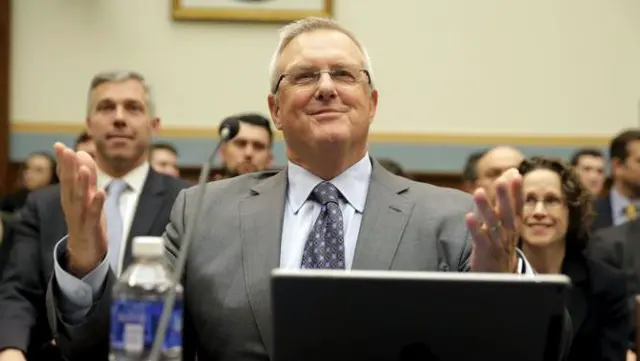The U.S. Federal Bureau of Investigation (FBI) and tech giant Apple faced off at a congressional hearing on Tuesday over hacking into the encrypted iPhone of a terrorist killer.
While the use of secure networks to prevent cyber threats is important, FBI Director James Comey told the House Judiciary Committee hearing that technical design decisions should not result in barriers to obtaining evidence of a crime in situations when government investigators get appropriate judicial approval.
"We are seeing more and more cases where we believe significant evidence resides on a phone, a tablet, or a laptop -- evidence that may be the difference between an offender being convicted or acquitted," Comey said.
"If we cannot access this evidence, it will have ongoing, significant impacts on our ability to identify, stop, and prosecute these offenders," he warned.
The FBI has gone to court to compel Apple to create software to unlock the iPhone of a dead terrorist who shot 14 people to death and wounded more than 20 others in San Bernardino, Calif. in December.
In response, Apple published an open letter to its customers, stating unequivocally that it's in opposition to the U.S. government's order. It also asked the U.S. District Court for the Central District of California to reverse its order compelling the company to do so.
Comey admitted Tuesday at the hearing that requiring Apple to unlock this phone could become a precedent for other cases, but he asked: "If there are warrant-proof spaces in American life, what does that mean? And what are the costs of that?"
Bruce Sewell, Apple's senior vice president and general counsel, reiterated the company's position at the same hearing that the FBI is "asking for a backdoor into the iPhone."
"We can all agree this is not about access to just one iPhone," Sewell said. "The FBI is asking Apple to weaken the security of our products. Hackers and cyber criminals could use this to wreak havoc on our privacy and personal safety. It would set a dangerous precedent for government intrusion on the privacy and safety of its citizens."
Comey denied Sewell's claim, saying "there is already a door on that iPhone" and that the FBI is just "asking Apple to take the vicious guard dog away and let us pick the lock." Enditem
 简体中文
简体中文

